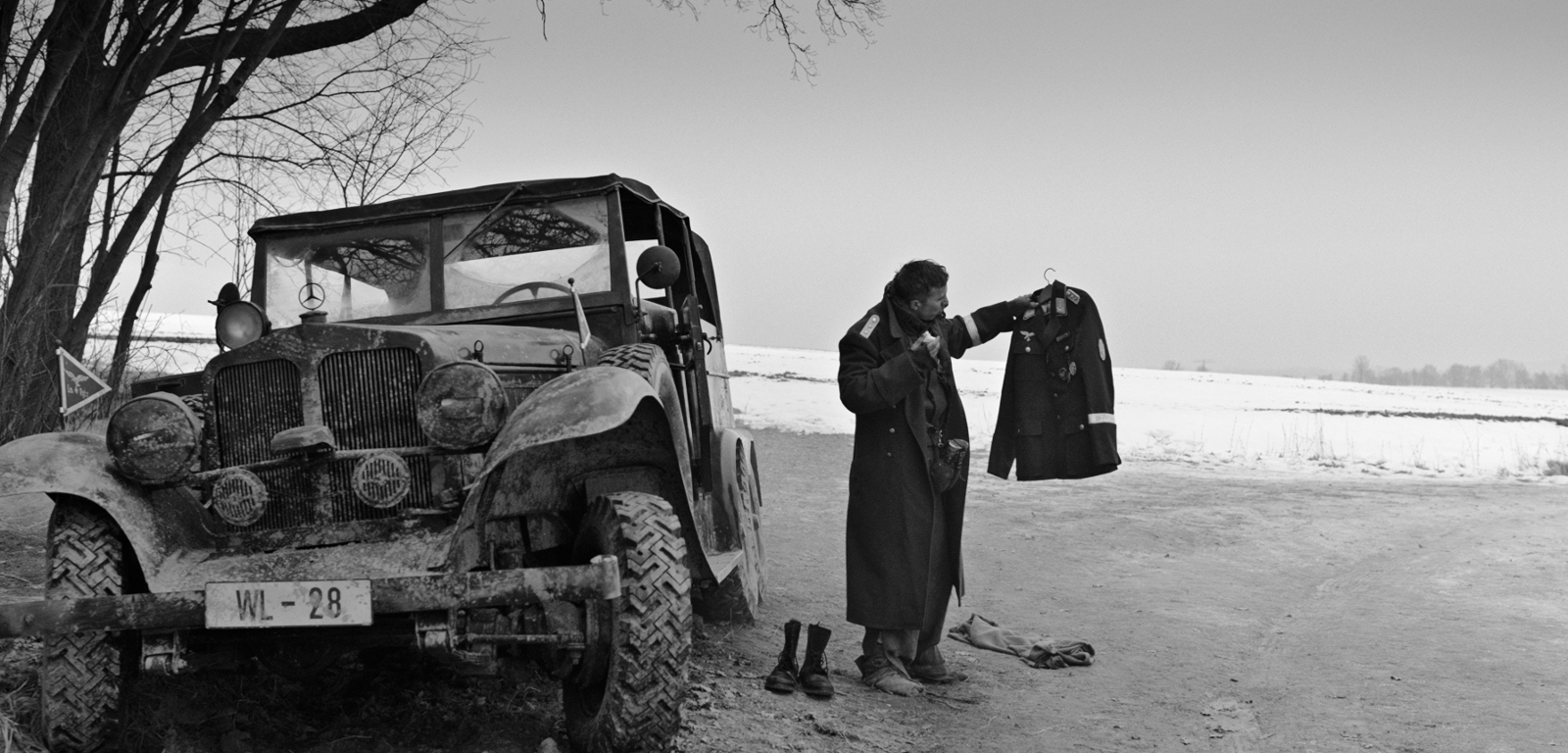Movie Info
Movie Info
- Director
- Robert Schwentke
- Run Time
- 1 hour and 43 minutes
- Rating
- R
VP Content Ratings
- Violence
- 6/10
- Language
- 4/10
- Sex & Nudity
- 1/10
- Star Rating
Relevant Quotes
See how they conceive evil
and are pregnant with mischief
and bring forth lies.
They make a pit, digging it out,
and fall into the hole that they have made.
Their mischief returns upon their own heads,
and on their own heads their violence descends.
Therefore God gave them over in the desires of their hearts to impurity, to the dishonoring of their bodies among themselves. They exchanged the truth about God for a lie and worshiped and served the creature rather than the Creator, who is blessed forever! Amen.

If there is any truth in that old maxim “Clothes make the man,” then it must go double if those clothes are in the form of a military uniform conferring even a moderate rank upon its wearer. Such is the case in German director/writer Robert Schwentke’s harrowing World War II drama, filmed in crisp black and white.
It is just a couple of weeks near the end of WW 2, a945 that we first see Pvt. Willi Herold (Max Hubacher) fleeing across the landscape. He is a deserter from the Nazi army and is being pursued by an open-air car full of German soldiers intent upon executing him. His face covered with mud, he drops down into a ravine and hides in a hollow created by a tree with large, overhanging roots. We have seen this scene in countless chase films—the fugitive hiding in fear while above him stand his pursuers looking fruitlessly over the landscape, and then giving up. Later, he will team up briefly with another deserter, but while stealing eggs in a hen house, the farmer comes out and stabs the companion with a pitchfork. Herold then struggles with and kills the farmer.
One day the harried deserter’s fortune changes. He comes upon an abandoned car. In the backseat he discovers in a box a folded uniform, that of a Luftwaffe captain. Cleaning himself up, he dons it and apparently feels a change in demeanor as the authority of its rank sinks into his consciousness. It is too large, but folding up the legs of the pants works, as he discovers when another deserter, the much older Pvt. Freytag (Milan Peschel), walks up to him and asks that he be assigned to attend him. They are soon joined by another small group, chief of whom is Kipinski (Frederick Lau). The latter is skeptical of Herold, but willingly plays along, so that the fake officer now commands a small squad.
In a tavern Herold makes up the story that he has been sent on a mission by “the highest authority” (the Führer himself). He is to inspect the various units he comes across and report back on their condition. However, our sympathy for the imposter soon withers when he takes out his pistol and shoots a captured deserter as a show of his authority and power. By his facial expressions we can see that the loyal Freytag is bothered by this brutal act. His anxiety will grow even greater in the next segment of the story. By now Freytag, who has learned that his officer is a phony after seeing a tailor shorten the trouser legs of the uniform, is completely disillusioned, and despairing.
Herold and his men enter a prison camp where hundreds of deserters are being held, awaiting orders from Berlin as to their fate. One commander is impatient with the bureaucratic delay, whereas the judicial commander, whose authority over the deserter section of the camp is greater, refuses to allow any executions until orders come through. The first commander is suspicious of Herold, demanding to see his papers. Herold is a good actor, bluffing the man with a torrent of words, including the promise/threat that he will report to the Führer on the conduct of the officers whom he has met. The first commander is happy that Herold agrees that the prisoners should be put to death. Exulting in his power, Herold over-rules the judicial commander, and begins a series of executions using an anti-aircraft gun to shoot the prisoners, who have just been forced to dig their own graves. He orders Freytag to jump into the trench and shoot those merely wounded.
The violence will be difficult to watch—and we see in the person of the wife of the camp commander that women can be as brutal as men. The film would have been better had we been given a little more of Herold’s background. We can only assume that he has come through the Hitler Youth—a surprise at the end credits is just how old he was when justice finally caught up with him! The sadistic violence of Nazism, was not limited to high ranking officials. The donning of the uniform and the transforming of a young man who should have sympathized with fellow deserters, reminds me of the film The Stanford Prison Experiment, about a scientific experiment gone wrong when volunteers who play-acted prison guards suddenly became cruel in their acts against volunteers playing prisoners. This film is for those who want living proof of the truth of Lord Acton’s famous saying, “Power corrupts, and absolute power corrupts absolutely.” We might dismiss the story as the creation of a violence-obsessed fiction writer, except that the end credits inform us that Willi Herold was a real person, nicknamed the Executioner of Emsland, and that he was among those punished by the Allies in 1946.
This review will be in the July issue of VP along with a set of questions for reflection and/or discussion. If you have found reviews on this site helpful, please consider purchasing a subscription or individual issue in The Store.
XYZ Films

